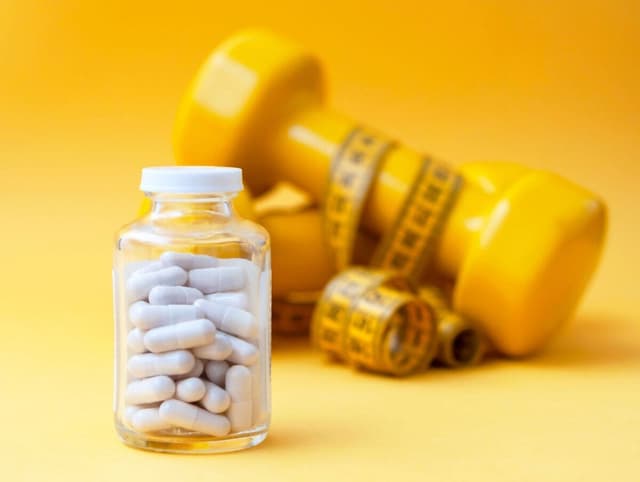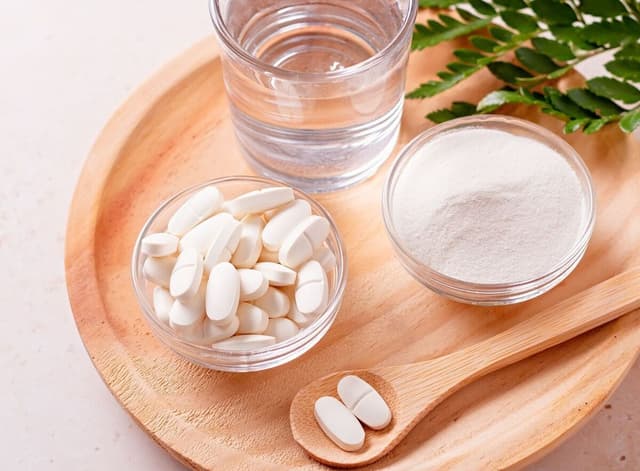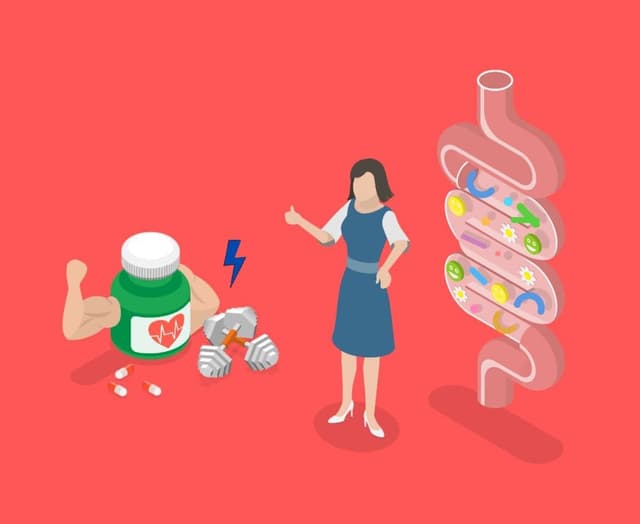How Long Does It Take for Creatine to Start Working? The Science Explained

October 16, 2024
Creatine is one of the most popular supplements in the fitness world, used by athletes and bodybuilders to boost performance and build muscle. But one common question remains: how long does it take for creatine to start working? If you’re looking to maximize the benefits of your supplement routine, understanding the timing of creatine’s effects is crucial. In this post, we’ll break down the science behind creatine, explore how quickly it works, and share tips for getting the best results with the best creatine available today.
How Does Creatine Work in Your Body?
Creatine is a naturally occurring compound found in your muscles. It plays a critical role in producing energy during high-intensity exercise. When you supplement with creatine, it increases the levels of phosphocreatine in your muscles, allowing your body to produce more ATP (adenosine triphosphate). ATP is the primary energy source for muscle contractions, meaning more ATP equals improved strength, power, and endurance.
But how long does it take for creatine to work its magic?
The Loading Phase vs. Daily Dosing
There are two common ways to supplement with creatine: the loading phase and daily dosing. The loading phase involves taking a higher dose of creatine (20-25 grams per day) for the first 5-7 days, followed by a maintenance dose of 3-5 grams daily. This approach saturates your muscles with creatine faster, leading to quicker results. Most people who follow the loading phase start to see noticeable effects within 5-7 days.
On the other hand, if you opt for daily dosing without a loading phase, it will take longer for your muscles to reach full creatine saturation—usually around 3-4 weeks. Both methods are effective, but the choice depends on how quickly you want to see results and your personal preferences.
Factors That Affect How Quickly Creatine Works
Creatine is a widely researched supplement, but its effectiveness can vary based on several factors. Understanding these factors can help you gauge how long it will take for creatine to start working for you.
1. Body Composition and Muscle Mass
Your body’s composition and muscle mass play a significant role in how fast you’ll notice creatine’s effects. Since creatine is stored primarily in your muscles, individuals with more muscle mass will likely experience faster results. Larger muscles require more creatine to reach saturation, so someone with a higher lean muscle percentage may see results in as little as a few days during the loading phase.
2. Diet
Your diet can also influence how fast creatine works. If you consume a diet rich in red meat and fish (which naturally contain creatine), your muscles may already have higher creatine stores, meaning supplementation might take longer to produce noticeable effects. Conversely, vegetarians and those who consume little to no meat often have lower baseline creatine levels, which means they may see more dramatic results in a shorter time frame.
3. Exercise Routine
The type of exercise you do will also impact how quickly you see results from creatine. Creatine is particularly effective for short bursts of high-intensity activity, like weightlifting, sprinting, or HIIT workouts. If your training primarily involves endurance exercises (like long-distance running), creatine may not provide as noticeable an effect because it’s not typically used in sustained, lower-intensity activity.
4. Hydration and Water Retention
One immediate effect of creatine supplementation is an increase in water retention within your muscles. This can lead to a temporary increase in weight as your muscles hold more water. This initial water retention phase can give you a fuller, more muscular appearance within the first week, especially if you’re doing a creatine loading phase. Hydration is key to maximizing creatine’s benefits, so drink plenty of water while supplementing.
How to Maximize Creatine’s Effectiveness
If you want to get the most out of your creatine supplementation, there are some key practices you can follow to optimize its effectiveness. Here’s a step-by-step guide to ensure you’re using creatine efficiently and effectively:
Our Top Recommendations

Optimum Nutrition Micronized Creatine Monohydrate Powder
Micronized for easy mixing, supports muscle growth and endurance.
See on Amazon$0.35 per 5g serving

Nutricost Creatine Monohydrate Micronized Powder
Third-party tested, non-GMO, 5g of pure creatine per serving.
See on Amazon$0.2 per 5g serving

NSF Certified, supports muscle power and recovery.
See on Amazon$0.46 per 5g serving

ProMix Creatine Monohydrate Powder
Micronized, additive-free, ideal for performance and recovery.
See on Amazon$0.36 per 5g serving

NOW Foods Sports Nutrition Unflavored
100% pure creatine, GMP certified, boosts strength and endurance.
See on Amazon$0.2 per 5g serving
1. Choose the Best Creatine
Not all creatine supplements are created equal. When selecting a creatine product, look for creatine monohydrate, as it is the most researched and proven form. Micronized creatine monohydrate is often considered the best creatine due to its smaller particle size, which enhances absorption and reduces bloating. Some people opt for other forms like creatine HCl or buffered creatine, but creatine monohydrate remains the gold standard for most users.
2. Follow the Loading Phase
If you want to see faster results, consider doing a loading phase. Take 20-25 grams of creatine per day for the first 5-7 days, split into 4-5 doses throughout the day. After the loading phase, reduce your intake to 3-5 grams per day to maintain muscle saturation. The loading phase isn’t necessary for everyone, but it’s a great way to speed up the process of seeing results.
3. Stay Consistent
Consistency is key when it comes to creatine supplementation. Whether you choose the loading phase or daily dosing, it’s essential to take your creatine every day to keep your muscles saturated. Skipping days or taking it irregularly will slow down the process and delay results.
4. Hydrate Well
Creatine pulls water into your muscles, which can sometimes lead to dehydration if you’re not drinking enough fluids. To avoid this, ensure you’re drinking plenty of water throughout the day, especially during intense workouts. Proper hydration will enhance creatine’s effects and prevent issues like muscle cramps.
5. Combine with a High-Intensity Workout Routine
Creatine is most effective when paired with high-intensity, short-duration exercises like weightlifting, sprinting, or interval training. If your goal is to increase muscle size and strength, creatine will work best when you’re regularly performing resistance training exercises.
6. Take with Carbohydrates
Research suggests that taking creatine with carbohydrates can enhance its absorption. A post-workout shake containing creatine and a source of fast-digesting carbs, like fruit or a sports drink, may help your muscles absorb creatine more efficiently.
When Will You Start Seeing Results?
So, how long does it take for creatine to start working? For most people, noticeable effects like increased strength and muscle size begin within 1-2 weeks if they follow a loading phase. Without a loading phase, you can expect to see results after about 3-4 weeks of daily dosing.
The initial boost you may feel in the first week is often due to increased water retention in the muscles. This can make your muscles appear fuller and give you an extra edge during workouts. After your muscles are fully saturated with creatine, you’ll start experiencing more significant benefits, such as improved performance, better recovery, and greater gains in muscle mass.
Conclusion
Creatine is one of the most effective and well-researched supplements for boosting athletic performance, and it’s no wonder many athletes and fitness enthusiasts rely on it to achieve their goals. How long it takes for creatine to start working depends on several factors, including whether you follow a loading phase, your body composition, and your workout routine.
If you’re looking for the best creatine supplement, make sure to choose a high-quality creatine monohydrate product, stay consistent with your dosing, and follow the tips in this guide to maximize your results. Whether you want to enhance your strength, increase muscle mass, or improve overall performance, creatine can help you reach your fitness goals faster.
Ready to get started with creatine? Check out our articles to boost your performance and results!






